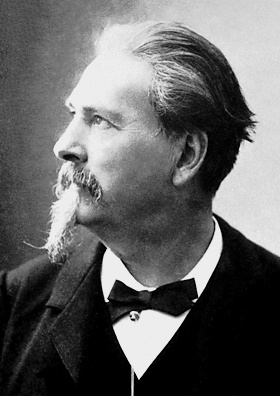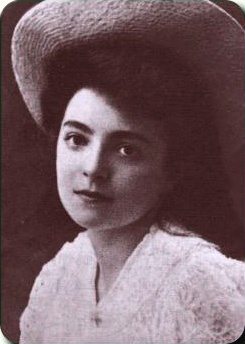While Nobel Prizes in the sciences often are shared, the Nobel Prize in Literature has only been shared on four occasions over the last century. And we’re willing to bet that the eight writers who have shared the Nobel Prize are not authors with whom you’re particularly familiar. Why, then, did these novelists end up sharing the award? There are a few different ideas floating around as to why the Nobel Prize in Literature is rarely divided between two writers. Let’s take a look at the four instances in which the Nobel Prize in Literature has been shared.
1904: Frédéric Mistral and José Echegaray
 Frédéric Mistral was a French dramatist who wrote in the Occitan language, a romance language spoken primarily in the south of France. He was awarded the Nobel Prize, according to the committee, “in recognition of the fresh originality and true inspiration of his poetic production.” His works, the committee explained, “faithfully reflect[ed] the natural scenery and native spirit of his people, and, in addition, his significant work as a Provençal philologist.” Have you read anything that Mistral wrote? The poet wrote works that emphasized the Occitan language and the local experiences of Provençal people. His most famous work is perhaps a long poem entitled Mireille (1859).
Frédéric Mistral was a French dramatist who wrote in the Occitan language, a romance language spoken primarily in the south of France. He was awarded the Nobel Prize, according to the committee, “in recognition of the fresh originality and true inspiration of his poetic production.” His works, the committee explained, “faithfully reflect[ed] the natural scenery and native spirit of his people, and, in addition, his significant work as a Provençal philologist.” Have you read anything that Mistral wrote? The poet wrote works that emphasized the Occitan language and the local experiences of Provençal people. His most famous work is perhaps a long poem entitled Mireille (1859).
Jose Echegaray was also a dramatist who wrote in Spanish. The Nobel Committee awarded him the prize in order to recognize his “numerous and brilliant compositions which . . . revived the great traditions of the Spanish drama.” El Gran Galeoto is his most famous play. It was adapted for the cinematic screen by Paramount Pictures in 1920, when it became available to a wider audience under the title The World and His Wife.
1917: Karl Gjellerup and Henrik Pontoppidan
In the midst of World War I, Gjellerup and Pontoppidan shared the Nobel Prize in Literature. Both prize winners were Danish. Gjellerup was a poet and prose writer honored for “his varied and rich poetry, which inspired lofty ideals,” while Pontoppidan shared the award in recognition of his “authentic descriptions of present-day life in Denmark.”
1966: Shmuel Agnon and Nelly Sachs
 After World War I, the Nobel Prize in Literature wasn’t shared for nearly fifty years. Shmuel Yosef Agnon was a Ukrainian-born Jewish prose writer who resided in Israel at the time of his award. The Nobel Committee recognized his “profoundly characteristic narrative art with motifs from the life of the Jewish people.” Like other widely read Jewish writers, Agnon wrote in Hebrew. His epic story The Bridal Canopy (1931) likely is his most famous work.
After World War I, the Nobel Prize in Literature wasn’t shared for nearly fifty years. Shmuel Yosef Agnon was a Ukrainian-born Jewish prose writer who resided in Israel at the time of his award. The Nobel Committee recognized his “profoundly characteristic narrative art with motifs from the life of the Jewish people.” Like other widely read Jewish writers, Agnon wrote in Hebrew. His epic story The Bridal Canopy (1931) likely is his most famous work.
Also a Jewish writer, Nelly Sachs was born in Berlin, Germany but lived out much of her later life in Stockholm, Sweden. This poet was awarded the Nobel Prize “for her outstanding lyrical and dramatic writing, which interprets Israel’s destiny with touching strength.”
1974: Eyvind Johnson and Harry Martinson
Less than a decade following the divided award in 1966, the committee again split the award. This time, the Swedish writers Johnson and Martinson shared the prize. Johnson was recognized “for a narrative art, far-seeing in lands and ages, in the service of freedom.” Martinson’s award, somewhat differently, was motivated by his writings that were said to “Catch the dewdrop and reflect the cosmos.”
Why Share the Prize?
Why was the Nobel Prize shared by these writers on these specific occasions? Some commentators suspect it had to do with the awarding committee’s desire to take into account issues of national favoritism. In other cases, it’s possible that political considerations came into play (even though they’re not supposed to). In still other cases, the Nobel Committee may have been torn between assessing a writer’s oeuvre as opposed to a particularly influential work. According to the Nobel Prize website, certain conditions must be met in order to share the award: "In the 1970s a policy was laid down, stating (1) that each of the two candidates must alone be worthy of the Prize and (2) that there must be some community between them justifying the procedure."
Regardless of the reason for dividing the prize, we suspect that you have some new writers to look into. While most winners of the Nobel Prize in Literature continue to be read widely, some writers (including those we’ve mentioned above) may need your help in returning their works to prominence.
Source here.









